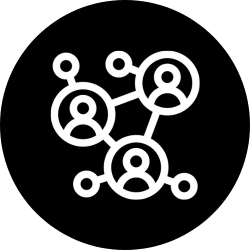
SMK is here for people trying to make lasting social change.
We work with and celebrate change-makers from across civil society, from those campaigning from their front rooms to those in the offices of global organisations.
We connect the campaign community to grow solidarity, share ideas, and find common cause.
Many of the change-makers we work with are trying to shift interconnected systems of inequality such as racism, sexism, classism and ablism that exist in our society. Some of them have direct, first-hand experience of the systems they’re trying to shift.
At SMK, we recognise that these systems are replicated in the organisations, like ours, that are working to change them. The social sector does not always reflect the communities it exists to serve or offer equitable opportunities within it. Certain kinds of knowledge, typically those gained through professional or academic experience, are valued over others. This must change, and we at SMK are committed to being part of that change.
Principles of Solidarity and EDI
Definitions of terms such as diversity, equity, inclusion and solidarity are contested. These are the principles underlying our approach:

Diversity
Diversity includes various elements of human difference and experience including, but not limited to, gender, race and ethnicity, faith, sexual orientation, disability and class. These, and the different forms of discrimination based on them, combine and intersect in complex and cumulative ways.
SMK strives to recognise, take account of, and value people’s different identities, backgrounds, knowledge and experience within our organisation and in our wider work for social change.

Equity
Equity is the promotion of justice and fairness, recognising that people do not all start from the same place. Tackling inequity requires an understanding of the underlying or root causes of disparities within our society, in terms of both opportunity and outcomes.
SMK takes an equity-based approach to ensure our culture, processes and distribution of resources promote fairness and justice, and use our position to challenge inequity in the institutions, systems and social norms of our sector and society.

Inclusion
Inclusion is the degree to which diverse individuals can participate fully and equitably in all aspects of activity. Inclusion requires a commitment to meeting the needs of different people and to creating environments where everyone feels valued, respected and able to realise their potential.
SMK is committed to creating an inclusive organisation and to promoting and championing more inclusive approaches to social change. This means putting the putting the needs and aspirations of communities most disadvantaged by inequity at the centre of our planning.

Solidarity
Solidarity is a commitment to standing together and showing support for each other in the face of inequity, discrimination and exclusion, and working together to tackle it. Solidarity can exist between different groups with different identities, backgrounds and experience. But it requires paying attention to the imbalances of power that exist between these groups and acting with intention to transform them.
SMK is committed to interrogating our own power and the assumptions we make based on our position, building connection and solidarity across diverse change-maker communities and creating deeper solidarity in our campaigns and social change strategies.
Sign up and get our newsletter
To be part of a more powerful civil society, sign up for news, upcoming events, training and consultancy. We will always respect your privacy. Read our Privacy Policy or click here to unsubscribe.
